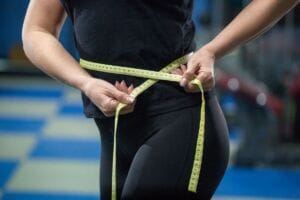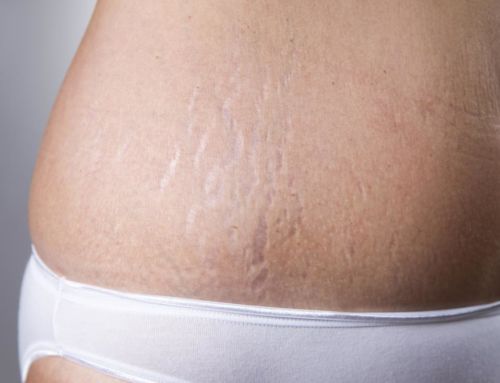Battling menopause weight gain may feel like an uphill struggle for many women. And when combined with many of the other symptoms of menopause, it can feel a little like their bodies are turning against them!
Does menopause cause weight gain?
Most women put on between 2lb and 5lb during the course of their menopause. But is it the menopause itself that is the culprit? Quite often, a perfect storm of factors come together to make it that much harder to maintain a healthy weight during our late forties and early fifties, namely:
Changes in oestrogen levels can contribute to weight gain. While it’s not a direct contributor – changing hormones around the menopause can affect the way that women’s bodies store fat – more around that middle than on the hips. Reduced oestrogen may also lower metabolic rate, the rate at which the body converts stored energy into working energy – and thought this still requires more research; it’s undoubtedly a fact that metabolic rate slows as we age.
However, it’s not all about hormones. Several lifestyle factors can impact on weight as we grow older.
As we age, we tend to need fewer calories than we did in the past – after all running around after young children and breastfeeding all burn up those calories that we are putting in. But as we grow more sedentary, we tend to still eat the same foods as we did before – which in turn can pile on the pounds over time.
The menopause can also interfere with sleeping patterns, and poor sleep is also associated with weight gain.
What diet helps to lose weight during menopause?
The simple fact is that to lose weight; you need to burn more calories than you consume. “Quick fix” diets, where you lose weight rapidly do not yield long term results, as the lifestyle changes needed to maintain a healthy weight are not established. Additionally, research shows that restricting calories to lower levels causes a loss of muscle mass and a further fall in metabolic rate.
Instead, to lose weight during the menopause, it is worth focusing on eating reasonable portions of heart-healthy foods – so lean proteins, a good variety of fruits and vegetables, healthy fats, legumes and whole grains.
Avoiding processed food and trans or saturated fats also helps to avoid menopause weight gain, so step away from the cakes, white bread and processed meats.
What is the best exercise during menopause?
The best exercise is the one which you will stick to, so whether you enjoy a good walk, love yoga or want to join a sports team – choose an activity that you will be happy to do regularly.
Experts recommend that you undertake either moderate activity (such as a brisk walk) for at least 150 minutes a week, or vigorous activity such as jogging for at least 75 minutes per week.
Additionally, adding in strength training helps to ensure that you gain muscle which allows you to burn calories more efficiently.
Are there any aesthetic treatments to help with menopause weight gain?
While it’s wise to look at lifestyle factors first – as these are what will keep you healthy, there are a number of aesthetic treatments which can help. At Eve Clinics we take a dual approach to helping women who are going through menopause. Our medical experts are on hand to give you guidance on medical interventions that can help alleviate effects of the menopause, while our aestheticians also offer a range of laser treatment which help to hide signs of ageing.
Get in touch with us to find out how we can help you.

Talk to us today!
Get in contact with our friendly and professional team to discuss your symtoms with us.





